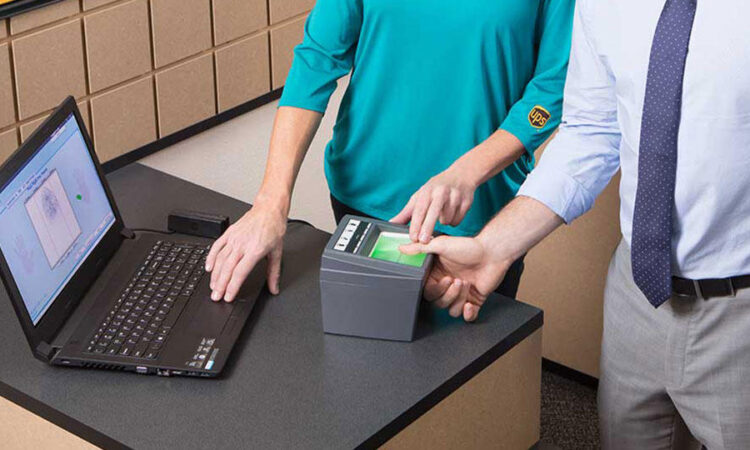
Live Scan fingerprinting is a crucial step in many background check processes, from employment screening to licensing and legal requirements. While the fingerprinting itself is a technical task performed with specialized equipment, there are often additional steps involved to ensure the integrity and legality of the process. One such important role is that of the notary public.
In this post, we’ll explore the role of notaries in Live Scan fingerprinting, why their involvement matters, and how they help protect both individuals and organizations.
What Is a Notary Public?
A notary public is an official appointed by the state to serve as an impartial witness in signing important documents. Their primary responsibilities include:
- Verifying the identity of the person signing a document
- Ensuring the person signs willingly and understands the contents
- Administering oaths and affirmations when required
- Certifying copies of documents
The notary’s role is to prevent fraud and protect the parties involved in legal and official transactions.
Why Are Notaries Involved in Live Scan Fingerprinting?
Live Scan fingerprinting often requires the submission of legal documents along with the fingerprints. These documents might include authorization forms, identity verification affidavits, or consent forms. To make these documents legally valid and trustworthy, many agencies require notarization.
Here’s why notarization is important in the Live Scan process:
- Identity Verification: The notary confirms that the individual undergoing fingerprinting is who they claim to be, adding an extra layer of security beyond just checking an ID.
- Legal Compliance: Certain agencies or states mandate notarized consent for background checks or fingerprint submissions, especially when sensitive or confidential information is involved.
- Fraud Prevention: Notarization helps prevent identity theft, forgery, or falsification of documents related to fingerprinting and background checks.
- Chain of Custody: It establishes a clear record showing the person’s acknowledgement and agreement, which can be important for legal or administrative proceedings.
When Is Notarization Required in Live Scan?
Not every Live Scan fingerprinting appointment will require notarized documents, but here are common situations where a notary’s role is essential:
- Employment Background Checks: Some employers or government agencies require notarized authorization forms for conducting background investigations.
- Licensing and Certification: Professions such as healthcare, legal, or financial services may demand notarized paperwork alongside fingerprint submissions.
- Legal or Immigration Applications: Notarization is often part of the documentation for visas, naturalization, or court-related fingerprinting.
- Volunteers and Foster Care: Agencies screening volunteers or prospective foster/adoptive parents may require notarized consent forms to verify the process’s integrity.
How Does the Notarization Process Work?
When a notary is involved in your Live Scan process, the steps usually look like this:
- Present Your Documents and ID: Bring all required forms and a valid government-issued photo ID to the notary.
- Sign in Presence of Notary: You must sign the document in front of the notary, who will witness the signature.
- Notary Verifies Identity: The notary reviews your ID to confirm your identity.
- Notary Applies Seal and Signature: The notary completes the notarization by signing, dating, and stamping the document.
- Submit Notarized Documents: The notarized paperwork is submitted along with your fingerprint data.
Tips for Working with a Notary for Live Scan
- Schedule Ahead: Notary services might require an appointment, so plan your fingerprinting and notarization accordingly.
- Bring Proper Identification: The notary will need a government-issued photo ID to verify your identity.
- Do Not Sign Early: Wait to sign the document until you are in front of the notary.
- Confirm Notary Requirements: Check if your Live Scan request specifically requires notarized forms.
- Use a Licensed Notary: Ensure the notary is authorized and in good standing with the state.
Can a Notary Also Provide Live Scan Fingerprinting?
Some professionals offer both notary and Live Scan fingerprinting services, making it convenient to complete all required steps in one place. If you need both services, ask your provider if they can notarize your documents onsite to save time and simplify the process.
Final Thoughts
Notaries play a vital role in the Live Scan fingerprinting process by ensuring that important documents are signed correctly and legally. Their involvement helps protect your identity, maintain compliance with legal standards, and provide peace of mind to all parties involved.
If your Live Scan appointment requires notarized documents, make sure to plan accordingly, bring the necessary IDs, and work with a trusted notary public. We recommend Newport beach livescan.







